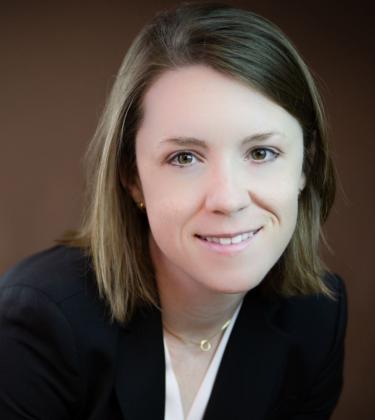The Robert A. Hedges Virtual Risk Seminar Series, hosted by the Fox Department of Risk, Insurance and Healthcare Management (RIHM), returned Tuesday, Sept. 1, with the first of six virtual sessions to be held during the fall semester.
Speakers come from both esteemed American and international institutions, and all sessions are free and open to the public. They take place from 12:30 p.m. to 1:30 p.m. on various Tuesdays and one Friday throughout the semester.
Below is the remaining schedule:
Tuesday, Oct. 27, Stephen Mildenhall (St. John’s)
Tuesday, Nov. 6, Yijia Lin (Nebraska)
Tuesday, Nov. 10, Kyeonghee Kim (Florida St.)
Tuesday, Nov. 17, Adriano Rampini (Duke), “Financing Insurance”
Friday, Dec. 1, Alexander Mürmann (Vienna)
The fall lineup began with a presentation from Emily Gallagher, an assistant professor of finance at the University of Colorado Boulder. Gallagher studies household finances, credit reports and the effects that climate disasters have on them.
Emily Gallagher
In the Zoom meeting, Gallagher talked about the aftermath of Hurricane Harvey. She found that there were fewer students attending college after the hurricane financially impacted their families, and she also discovered that student financial debt was lower for students who come from areas with a higher intensity of flooding.
Strong leadership can transform a seminar series. Coordinated efforts from Benjamin Collier and Cameron Ellis, assistant professors of RIHM, use their past experience to fuel its success.
Collier’s career has spanned across disaster research areas with a focus on how households and firms manage severe climate risks. In part, his work has been impacted by the COVID-19 pandemic, which is also why the Seminar Series has moved fully virtual.
“One of the advantages of hosting the series on Zoom is that there are a lot of great academics from other parts of the world who, even under normal circumstances, might be unable to participate in the seminar in person but they can join virtually,” Collier says.
The Robert A. Hedges Seminar Series is an integral part of a RIHM student’s professional goals and research endeavours, and it’s also beneficial for professionals and academics working in the field.
“There’s a couple of core objectives for the series,” Collier says. “One is that it keeps the faculty and doctoral students connected to ongoing, high quality research in our area. The second is building a research community that strengthens the relevance of our work. These interactions give us new insights in our own research and even lead to future collaborations with our invited speakers.”
Originally published at Fox.Temple.edu

